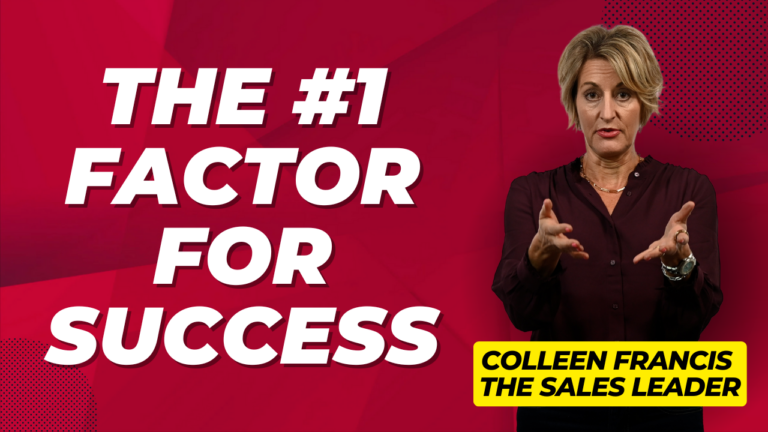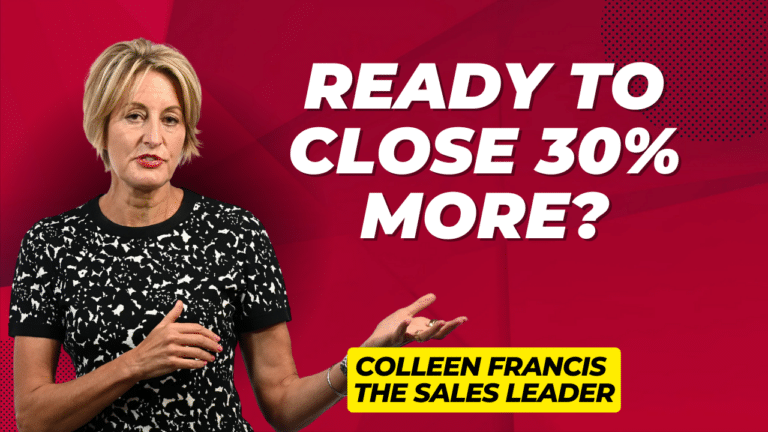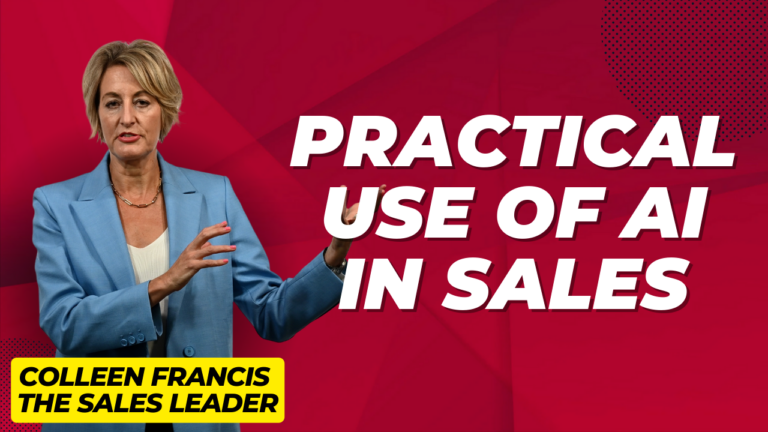An
often overlooked source of increased sales is your current customer list. I am constantly
amazed at the number of sales professionals and companies that do nothing to encourage
repeat sales, up-sales and cross-sales within their own customer list.
As
I write this, many of my clients are struggling with how to ensure they finish their
selling year at or above target. My message to you is go back to your current
customer list.
Your
customer list is your most important sales asset. Not only is it easier to sell more
to existing customers (because they already like you and trust you), it is more profitable.
The most recent studies show that repeat sales are up to 15 times more profitable than
new sales. If you are a business owner – this statistic should excite you! If you
are a sales rep, take note that one reason repeat sales are more profitable is because
repeat sales are faster. When I teach Sell More, in Less Time, and Make More Money™ we
focus on relationship building to ensure you are capturing as many repeat sales as possible,
for this very reason.
I
should note that there are lists, and then there are lists. The sales rule of thumb is
that a list loses 10% of its value each month of absent contact. So, 10 months of no
contact with your customers means your list is worth nothing…and you might as
well cold call. Relationship neglect results in many sales losses, including seduction
by competitors and the loss of referrals which over time can result in 10’s or
100’s of thousands of dollars in losses for your business.
Your
list is as valuable as the quality of relationship you have with the customers on your
list their perception of that relationship. To sell more to the customers on your list
you must transition your thinking from "customer list" to "building
a relationship with my customer".
You
can create a profitable relationship with your customers using the following components
(read VORTEX):
1. Variety:
Recent studies from the Information Marketing Association show that your current clients
can tolerate up to 200 contacts per year before they will ask you to go away – as long
as you provide a variety of touch points. You can’t call a customer 200 times a
year without getting on the do not call list. You can call, email, mail, fax, send them
to your web store, use audio, video, attend networking events, trade shows & fundraisers,
make in-person sales calls, use article placements in trade journals, and send gifts & advertising
specialties. The reason customers can withstand up to 200 touches per year is because
smart sales people know to mix up the media types they use to contact their customers.
2. Occurrence:
How often are you in touch with your clients? Regardless of whether 200 touches is specifically
appropriate for you, don’t let the number cloud the real message: likely you are
not doing enough. In my work, most companies and sales professionals feel that if they
reach out four times per year, they are stalking the client. I believe that 26 is the
minimum number of touches required per year for a truly profitable relationship. Using
component #1, Variety, you can build strong relationships with your clients by delivering
valuable information on a regular basis using a variety of media types. Once every two
weeks will not be overwhelming.
3. Reliability:
All 26 touches should arrive as expected and anticipated on a regular schedule. You might
consider sending a monthly email, combined with a monthly hard copy newsletter at 2 week
intervals. You could advertise a free monthly web or tele-class for your clients on product
training or business topics complimentary to your products. Trust is built with consistent
behavior over time. Consistently and reliably delivering your message to your clients
will demonstrate you can be trusted to deliver what you said, when and how you said it.
Client’s don’t like surprises, they like results.
4. True:
In order to build a relationship with your clients you must maintain constant contact
with them without lapse or interruption. What do you think would happen to the relationship
with your spouse if you unexpectedly didn’t come home one night, didn’t call,
didn’t email or attempt contact and then arrived home again unexpectedly 3 months
later? When you don’t call your friends for weeks at a time, does your relationship
grow stronger or weaker?
I
have often thought that the sales relationship is similar to the dating or courting relationship.
Regular contact at consistent intervals is key to people believing and trusting you.
You can’t build a personal relationship without regular communication. Likewise
with business relationships. If you don’t call, your clients will build a relationship
with someone else (i.e. your competitor) who does.
5. Engaging.
Be entertaining and friendly, yet professional. Remember that all selling (B2B and B2C)
is selling to humans. Your clients want to have fun, they want to laugh and they want
to be entertained. Don’t go too far or you sacrifice your message. Which airlines
command the most customer attention during the pre flight safety announcements – those
on Southwest and WestJet, or those on the traditional airlines such as American, United,
Air Canada and US Air? Southwest and WestJet are more engaging because they make the
announcements fun and friendly while still being professional.
Make
sure that every contact attempt you send is worth opening, reading and acting on. A banking
client of mine recently sent 30 invitations to an art auction to his best 30 customers.
It was a fun event, sponsored by his bank that showed a more human side to their business.
All 30 said no, but six proactively asked for follow up appointments because they wanted
to revisit their portfolios and add new services.
6.
Excellent. I don’t mean always using the best paper and
the most expensive pen. What I mean is to be sure to include information, education,
entertainment and other interesting "stuff" that is relevant and valuable
to your clients from, delivered from an interesting person: you. Don’t just "pitch" your
clients each time you reach out to them. Share interesting ideas, your favorite books
on business and your thoughts on articles they might find useful. Remember that you are
a human, selling to a human.
As
defined by www.dictionary.com, a Vortex is something "regarded
as drawing into its powerful current everything that surrounds it" Ideally
this is how you want your customers to react to you. Creating a relationship Vortex means
you draw towards you everything you touch, and, combined with the power of referrals
those people your client’s reach out to will also be drawn in. Thus your network
and circles of influence are expanded and the power of the VOREX is increased.
Using
the 6 VORTEX components as your guide, here are some contact ideas to try as part of
your 26 touches a year:
- Thank-you card (hand written, personalized and not on
corporate stationary). - Monthly e-newsletter
- Monthly hard copy newsletter
- Weekly fax or email on top tips for using your products
- Invitations to seminars – live or on the web
- Advertising specialties, sent as a thank-you, that your
clients will want to use such as pens, mouse pads, calendars, etc… - Birthday cards
- Company anniversary cards
- Invitations to trade shows and conferences
- New product announcements (separately or in a newsletter)
- Market reports or analyst reports
- White papers
You
want your customers buying from you because they have a stronger relationship with you
than any other provider. You have created a VORTEX relationship when your clients think
to come to you first even if it is less convenient, feel guilty about dividing allegiance
and readily refer you to others. You will have more permission, more tolerance and more
acceptances of your promotions and offers when you have achieved this VORTEX relationship.



